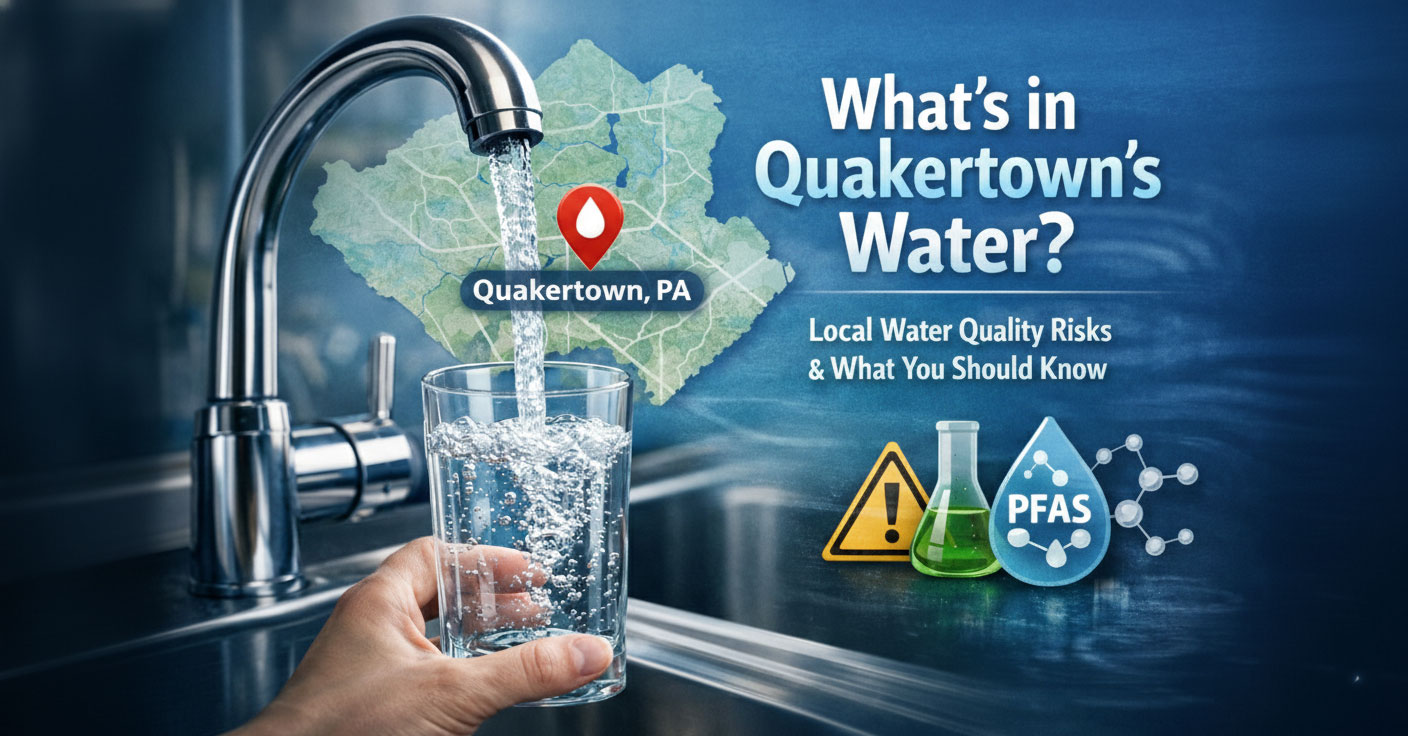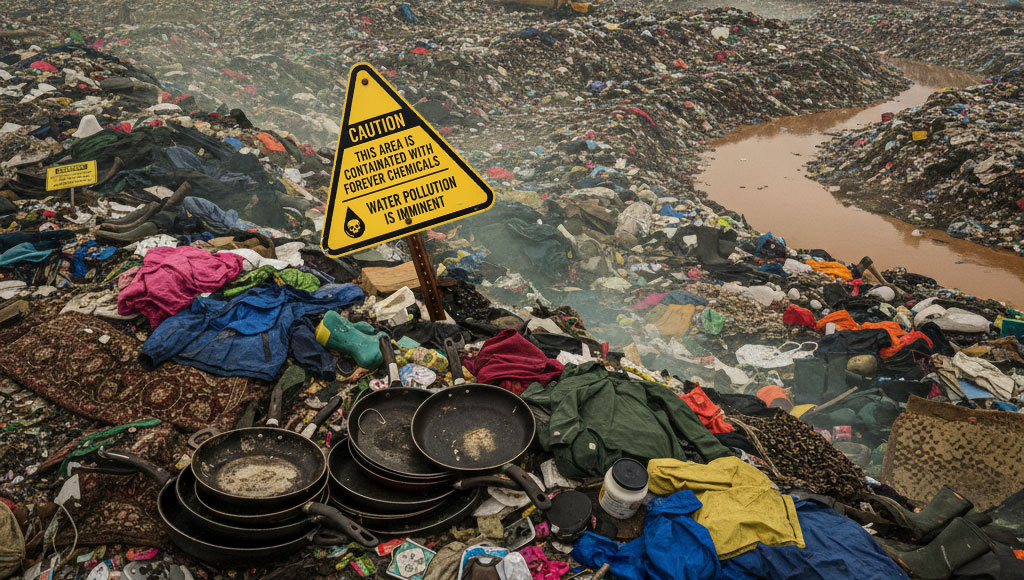Introduction
Back-to-school season isn’t just for kids—it’s also a great time for homeowners to learn something new. One overlooked subject is water chemistry. While water may seem simple, what’s inside it can affect your health, your plumbing, and your everyday comfort.
To kick things off, take a look at this quick video, The Chemistry of Water | Chemistry Basics, which demonstrates how water molecules bond and interact. That same science shapes the water flowing through your home every day. At Dierolf Plumbing & Water Treatment, we believe that when families understand the basics of water science, they can make better decisions to protect their homes and health.
The Building Blocks of Water Chemistry
Water chemistry comes down to a handful of key factors. These may sound like something out of a textbook, but they directly explain many of the water issues you see around the house.
- Hardness: Primarily caused by calcium and magnesium. Hard water makes soap harder to lather and leaves behind cloudy spots on dishes, fixtures, and glassware.
- pH: Measures acidity or alkalinity on a 0–14 scale. Neutral is 7, below is acidic, above is basic. What most people don’t realize is that pH is measured on a logarithmic scale—meaning every whole number represents a tenfold change. A pH of 6.8 isn’t just “slightly low”; it’s significantly more acidic than it first appears. (We’ll be exploring this in detail in an upcoming article about the hidden impact of small pH changes.)
- Alkalinity: Water’s ability to neutralize acids, which is critical for preventing corrosion in plumbing systems.
- Total Dissolved Solids (TDS): The total of everything dissolved in water—minerals, salts, and sometimes contaminants.
These factors set the stage for both water’s benefits and its problems.
Why Minerals Matter
Minerals in water aren’t automatically bad. In fact, calcium and magnesium are essential nutrients. But too much can cause trouble:
- Scale buildup: White, chalky deposits inside pipes and appliances, which lower efficiency and shorten equipment life. Concerned hard water is ruining your hair, skin or plumbing? We have great solutions!
- Stains: Iron leaves orange marks; manganese leaves black streaks on sinks, tubs, and laundry. Get rid of those stubborn toilet stains once and for all with our advanced filtation systems
- Taste and odor: High mineral levels can make water bitter, metallic, or unpleasant. Does you water smell and taste funny and you want to learn more? Check out our expert advice to learn more about sulfur in water and how chlorine and chloramines can also play a role.
If your soap doesn’t lather, your dishes come out cloudy, or your laundry looks dull, you’re already experiencing the science of minerals in action.
Contaminants Beyond the Basics
Not all water problems come from natural minerals. Some contaminants are invisible and more concerning:
- Lead and copper: Can leach into water from older plumbing and fixtures.
- PFAS (also called microplastics or forever chemicals): Man-made compounds increasingly found in Pennsylvania groundwater and linked to health issues.
- Nitrates: Common in agricultural areas and especially dangerous for infants and children.
These aren’t things you can see, smell, or taste—but they can show up in testing. Think of them as the “wrong answers” you don’t want in your water.
The good news? Science offers solutions. At Dierolf Plumbing & Water Treatment, we provide customized Water Treatment Services designed to remove or reduce contaminants, balance pH, and improve overall water quality. From reverse osmosis to UV disinfection, our systems are built to match your water’s unique chemistry.
Local Water Chemistry in Southeastern PA
In Pennsylvania, water chemistry can vary dramatically—even within the same town.
- Municipal water: Typically treated with chlorine or chloramine for disinfection, which can leave taste and odor issues behind.
- Well water: Highly variable—one home may have very hard water, while the neighbor’s well produces acidic or iron-heavy water.
That’s why professional water testing is essential. It’s like running a lab experiment customized for your home. Without testing, you’re only guessing.
The Science of Fixing Water Chemistry
Once you understand what’s in your water, you can apply proven solutions:
- Water softeners: Remove calcium and magnesium, preventing scale buildup.
- Reverse osmosis (RO): Produces ultra-pure drinking water by filtering out salts, contaminants, and dissolved solids.
- UV disinfection: Uses ultraviolet light to neutralize bacteria and viruses without chemicals.
These technologies aren’t just equipment—they’re real-world applications of water chemistry that protect your home and family.
Educational Takeaway: Bringing Science Home
Water chemistry doesn’t have to stay in the classroom. Families can explore it with simple, hands-on activities:
- DIY hardness test: Fill a clear bottle with tap water, add soap, and shake. Lots of suds means soft water; little or none means hard water.
- Check your CCR: Consumer Confidence Reports are publicly available and show what’s in your local municipal water supply.
- Schedule a professional water test: The simplest way to see a complete picture and get actionable solutions.
Back-to-school season is all about learning. Why not make water chemistry your next lesson?
Conclusion
Water chemistry isn’t just a subject from science class. It affects your health, your plumbing, and your everyday comfort. By understanding the basics, you can make better decisions and protect your home.
At Dierolf Plumbing & Water Treatment, we make the science simple and the solutions effective. Ready to see what’s really in your water? Schedule a complimentary water test today—your first step toward cleaner, healthier water.



